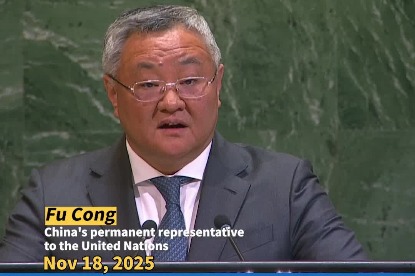Economy of EU set to outpace UK


Europe's economy is projected to grow faster than the United Kingdom's in 2026, as the UK absorbs tax increases and braces for further measures expected to be announced in its budget on Nov 26.
The European Commission, the executive arm of the European Union, forecasts an EU growth of 1.4 percent in 2026, compared with a 1.2 percent expansion for the UK economy, according to the Bank of England.
The Bank of England has said the move by the UK's Finance Minister, Chancellor of the Exchequer Rachel Reeves, to raise employers' National Insurance has weighed on growth, and warned earlier this month that expectations of additional tax measures in the budget could dampen activity well into 2026.
The EU projects inflation of 2.1 percent across the 27-member bloc next year, while the UK is expected to face 2.5 percent. That leaves the Bank of England with less room to cut rates than the European Central Bank. As a result, UK policy is expected to remain tighter for longer, The Daily Telegraph newspaper reported.
The commission's outlook also points to a sharp shift in Europe's fiscal landscape, said the paper, as Germany's budget deficit is expected to overtake Spain's this year.
Spain's shortfall is set to narrow to 2.5 percent of GDP, while Germany's is projected to rise to 3.1 percent. It would be the first time since 2008 that Germany's deficit has exceeded Spain's.
Germany is planning to spend 500 billion euros ($579 billion) on infrastructure and potentially a similar amount on defense.
The commission forecasts that Spain is on track to run a lower deficit than even the Netherlands next year, a notable achievement given the Netherlands' reputation for strict fiscal discipline.
Spain's budget deficit is forecast to be 2.1 percent of GDP in 2026, compared to 2.7 percent for the Dutch, driven by rising tax revenues, economic growth, tourism and immigration.
The EU has lowered its 2026 outlook for the eurozone, which covers the 20 countries that use the currency, pointing to trade and geopolitical headwinds.
The commission said the currency bloc's "highly open" economy remains "susceptible to ongoing trade restrictions".
"Persistent trade policy uncertainty continues to weigh on economic activity, with tariffs and nontariff restrictions potentially constraining EU growth more than expected," the commission said in a statement.
European Commissioner for Economy and Productivity Valdis Dombrovskis struck an upbeat tone despite the uncertainty. "Even in an adverse environment, the EU's economy has continued to grow," Dombrovskis said in a statement.
Brussels projects that inflation for the eurozone will reach 1.9 percent in 2026, compared with an earlier estimate of 1.7 percent. The commission said slower food and services inflation has been "counterbalanced by rising energy inflation".
jonathan@mail.chinadailyuk.com
































